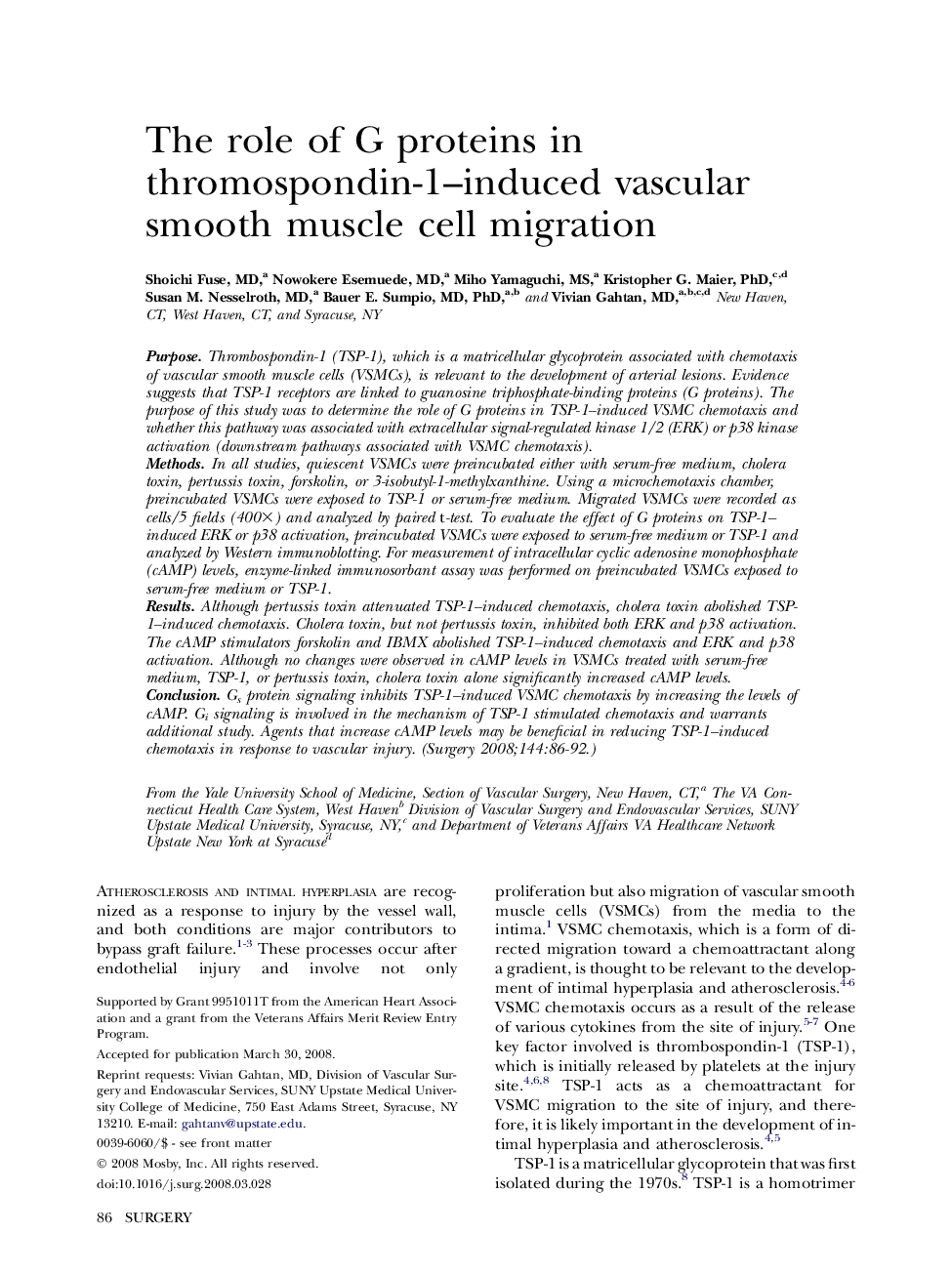| Article ID | Journal | Published Year | Pages | File Type |
|---|---|---|---|---|
| 4309764 | Surgery | 2008 | 7 Pages |
PurposeThrombospondin-1 (TSP-1), which is a matricellular glycoprotein associated with chemotaxis of vascular smooth muscle cells (VSMCs), is relevant to the development of arterial lesions. Evidence suggests that TSP-1 receptors are linked to guanosine triphosphate-binding proteins (G proteins). The purpose of this study was to determine the role of G proteins in TSP-1–induced VSMC chemotaxis and whether this pathway was associated with extracellular signal-regulated kinase 1/2 (ERK) or p38 kinase activation (downstream pathways associated with VSMC chemotaxis).MethodsIn all studies, quiescent VSMCs were preincubated either with serum-free medium, cholera toxin, pertussis toxin, forskolin, or 3-isobutyl-1-methylxanthine. Using a microchemotaxis chamber, preincubated VSMCs were exposed to TSP-1 or serum-free medium. Migrated VSMCs were recorded as cells/5 fields (400×) and analyzed by paired t-test. To evaluate the effect of G proteins on TSP-1–induced ERK or p38 activation, preincubated VSMCs were exposed to serum-free medium or TSP-1 and analyzed by Western immunoblotting. For measurement of intracellular cyclic adenosine monophosphate (cAMP) levels, enzyme-linked immunosorbant assay was performed on preincubated VSMCs exposed to serum-free medium or TSP-1.ResultsAlthough pertussis toxin attenuated TSP-1–induced chemotaxis, cholera toxin abolished TSP-1–induced chemotaxis. Cholera toxin, but not pertussis toxin, inhibited both ERK and p38 activation. The cAMP stimulators forskolin and IBMX abolished TSP-1–induced chemotaxis and ERK and p38 activation. Although no changes were observed in cAMP levels in VSMCs treated with serum-free medium, TSP-1, or pertussis toxin, cholera toxin alone significantly increased cAMP levels.ConclusionGs protein signaling inhibits TSP-1–induced VSMC chemotaxis by increasing the levels of cAMP. Gi signaling is involved in the mechanism of TSP-1 stimulated chemotaxis and warrants additional study. Agents that increase cAMP levels may be beneficial in reducing TSP-1–induced chemotaxis in response to vascular injury.
